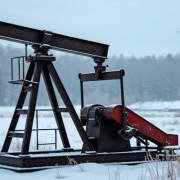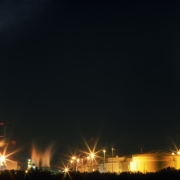We must suffer – from here until Methanopolis coming
After the collapse of communism in 1989, Fukuyama famously predicted the end of history. His words were some of the most egregious blunders in the predicting business as from where I am standing, history is currently making large strides.
It’s hard to remember a time in my life that was so dominated by conflict. Even during the Cold War, the world seemed a rather calm place with the occasional conflict flaring up. Today, it seems that the world is in flames.
And it still matters to us in energy terms. At least to some of us as a part of the world is currently inexorably moving towards energy independence or at least some sort of it.
Does it make a difference? Would the world be any more peaceful if most nations would be energy-independent of some sort? Looking at the two most outstanding conflicts of those days, the war in Ukraine and the Gaza stalemate – one might be forgiven for thinking that there are other dynamics at work and that energy independence would not have averted them.
Most probably true but those conflicts would still be dealt with in a way more decisive way and hence ended earlier if energy would not loom on our minds at every turn and twist.
Let’s focus on Ukraine. Natural Gas has not been the source of the conflict. An urge for freedom was but it is undeniable that energy plays an important part in the way this drama unfolds. If Russia were not the biggest gas supplier to the European Union, leaders in European countries would probably take a much more principled stance towards an aggressor. If Natural Gas pipelines would not lead all through Ukraine, Russia would probably be a bit more relaxed about the situation and Ukrainians would not be threatened by energy oblivion.
This, however, goes further. A less energy-dependent Europe would deny Russia a big part of the funds it currently uses to entertain an army that is far too big to sustain for an economic minnow such as Russia. If one takes the extractive industry out of the picture, Russia would not be Congo but it would also certainly not be able to stand in line with economic powers such as India and China.
Without the energy weapon and the energy income, Putin would also not be able to dream grandiose dreams of a revival of the Soviet Union, and he would also have a much harder time with financing proxy wars in Georgia, and Moldavia and foment unrest in other countries.
Without the income from energy, Russians would be more vocal in their demands for fairness, freedom, and transparency and Russia would likely be a better country at peace with its neighbors. This, of course, is all speculative. Who – in the end – knows the future and it’s always easy to play armchair analyst but those arguments strike a chord – nonetheless.
Many of those arguments would be true to many of the earths oil producing regions or states. It almost looks like that just because oil has been found under their soil has stymied all efforts to find other ways to produce something someone might be willing to pay a buck for.
Look at Russia as a typical example. Their economic weight is comparable to Italy, a country 3 times less in population and infinitely smaller. If one subtracted the extractive industry from that picture, we would probably deal with something as economically important as Belgium. This is for a country that has once been one of the two defining powers of this planet. It’s abysmal.
Oil and gas, it seems, have an impoverishing effect on countries. Look around the world. Only a very few countries were able to resist the urge to become petro-economies when significant oil was found under their soil. This produces repression which in turn leads to tensions that search for a way to deflate producing conflict.
Let’s take the Gaza conflict as another example. Again, this is not an oil or gas conflict per se. But without the money from energy-rich countries shoring up Hamas and other extremist groups, the conflict would be far less violent.
Israel is a non-oil economy (it still is despite the finds under the Mediterranean) and its state and society are infinitely more stable and wealthy than any other state in the region. Relying on one’s labor and not on resources extracted from the soil seems to have an enriching effect.
Natural resources are treacherous as they provide easy clippings from selling them. It gives governments and people an easy way and who would not fall for it? Here in Europe, we are most certainly not immune from it.
In theory, countries such as the Democratic Republic of Congo or Sudan should be extremely wealthy countries. On the contrary, they rank among the poorest on earth. And territories such as Switzerland with very few natural resources, or Hong Kong and Singapore with none at all should be dirt poor. They – to the contrary – lead the ranks.
Why is all this important? Well, we are living through every newscast on the conflict in faraway regions because we know that our livelihood depends on those unstable regions and that those unstable regions cannot get stable as long as easy money from resources sales keeps gushing in.
If instead we went energy-independent and stopped relying on those fickle energy imports, we would do much to make our nights a little more peaceful, and we would also start drying up the swamps of war, terrorism, and strife in those oil-producing regions.
If we deny oil its value and give it its price – people in those countries will eventually look for other ways on how to make a living. We had countless examples of how nations have emerged from the rubble of World Wars with nothing but the unbending will to re-emerge. Japan was a ruined country scorched by two nuclear blasts and virtually no natural resources. Despite the ongoing crisis, it’s still a much better place to live than Congo or Sudan.
North America has started its way of energy independence with shale gas and oil. This is a start but we should not stop. In the end, there will be bio-methane and synthetic Methane which will eventually usher in the age of emissions-free energy and mobility.
Methanopolis beckons and it will be for the better of us. Because the end of history is not near – history has just stepped on the accelerator. And that’s a good thing.


















Leave a Reply
Want to join the discussion?Feel free to contribute!